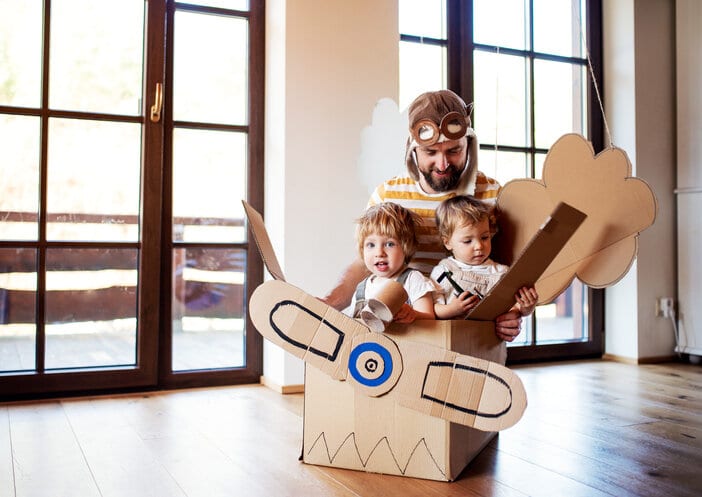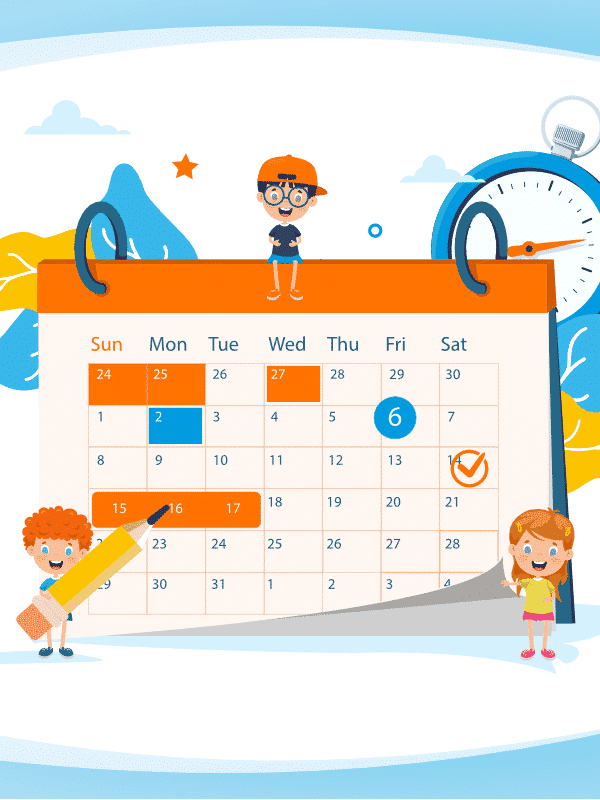If you’re reading this, it’s a safe bet that you want your kids to become fluent in Spanish. But chances are you also have some questions about the best way to accomplish this. Some of the biggest questions parents have about language education are about when to start it: Is there a best age to learn a second language? Is it ever too early? Is it ever too late? In this article, we’ll use research findings plus our own experiences as language trainers to answer those questions.
When Learning a Second Language, Earlier Is Better
First, we can tell you very confidently that it’s never too early for kids to start learning a second language. In fact, children who are exposed to two languages from birth usually attain native proficiency in both. Babies have a lot of advantages on their side when it comes to language learning. Their brains can take in all of the 800 sounds that different human languages use. For example, the infant child of two English speakers who gets regular exposure to Spanish will easily distinguish between the Spanish r and rr sounds and be able to reproduce those sounds someday. On the other hand, someone who starts learning Spanish as an adult doesn’t have the instinctive grasp of those different sounds. So they may have trouble learning how to roll their rr’s.
Is there any downside to starting early with Spanish education? Some parents may worry that learning two languages at the same time might confuse kids or lead to delays in their speech and language development. But researchers have debunked these ideas. It is true that a toddler who is learning both English and Spanish might know fewer words in each language than a toddler who speaks only English or only Spanish. But if you look at the total number of words a bilingual toddler knows in both English and Spanish, it’s probably going to be comparable to the total number of words a monolingual toddler knows. It’s also not uncommon for a toddler who’s learning English and Spanish to blend words from both languages in a single sentence. But they eventually learn how to separate the languages.
Want your child to become bilingual by learning Spanish?
Sign up for our newsletter & get a FREE Spanish class!
Even Older Kids Have Advantages in Language Learning
So if you didn’t start Spanish lessons before your kids were out of diapers, does that mean that they will never become fluent? Absolutely not! Kids’ brains remain more receptive to language learning throughout their childhood. Researchers are still trying to determine how long this “prime time” for gaining fluency lasts. But one study found that it might extend to the late teens.
Other research has found that older kids bring their own brain advantages to learning a second language. They are more advanced cognitively than little kids, so they pick up on things like grammar faster.
Language learning, however, doesn’t just come down to brain mechanics. It isn’t just the fact that they have malleable brains that makes little kids so adept at language learning. It’s also the environment that young children live in. Most adults instinctively talk a lot to the babies or small children who are in their care — and they speak to little kids in a simplified way that helps them start to grasp the basics of the language they are hearing. The emotional bond they share with the adults in their world also enhances small children’s language learning. They want to communicate with the people they care about. Finally, small children are frequently surrounded by toys, music, and media that are geared to help them with language learning.
But there’s nothing to say that we can’t re-create these advantages for older kids. To help your children learn Spanish faster, you could give them opportunities for conversation practice with instructors who know how to relate to their age group and with peers whose company they enjoy. You could also help them discover Spanish-language books, shows, music, and games that fit their interest and their Spanish proficiency levels.
Learning a Second Language with TruFluency Kids
So back to the question we started with: What’s the best age to learn a second language? At TruFluency Kids, we believe the answer is always “the age your kids are right now.” And we invite you to join a small online LIVE session today!


